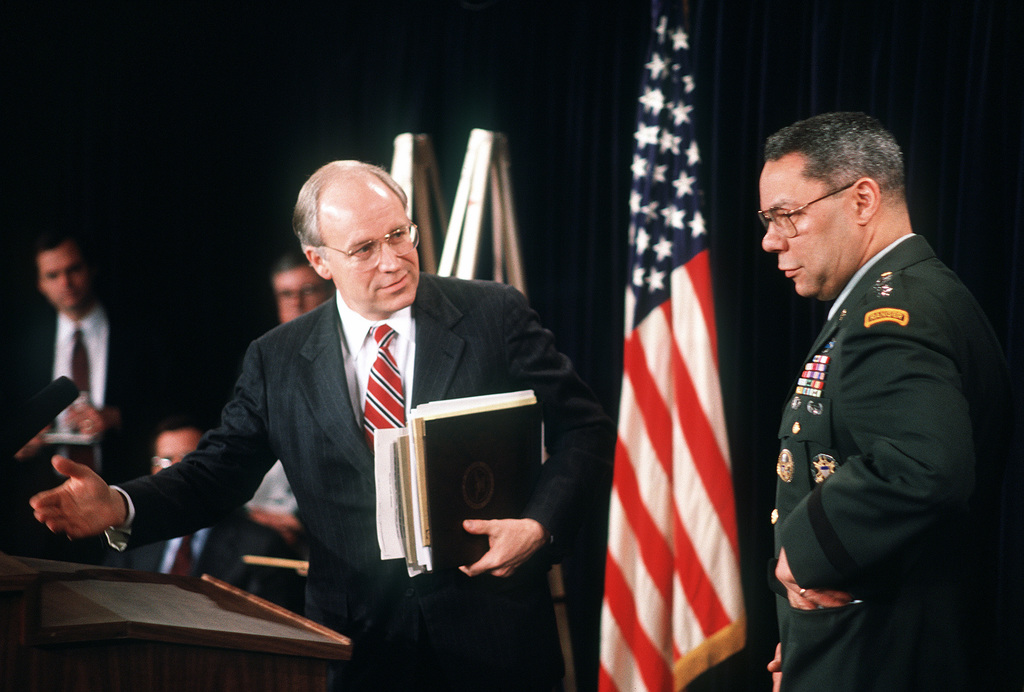On October 18, former Secretary of State Colin Powell passed away, leaving behind a legacy of the failure in Iraq and his famous lie to the U.N. that Saddam Hussein and his regime were “concealing their efforts to produce more weapons of mass destruction.” As a figure who is consistently remembered favorably by older Americans and unfavorably by millennials and college-aged individuals, Powell is not often considered someone to be revered. It is widely accepted that the decision to invade Iraq and to tell the world about Hussein’s supposed WMD production was one of America’s most significant 21st-century foreign policy blunders.
Many articles written about Powell’s life mention this blunder front and center: the Guardian, CNN Politics, the nonpartisan Council on Foreign Relations, NBC News, and the Associated Press all mention his 2003 speech to the U.N. while supposedly highlighting the life of an American civil servant. Only the Washington Post presents a glowing description of his life, highlighting the good while leaving out WMD commentary. These news outlets are missing the point; the Guardian goes so far as to paint Powell as a two-faced imperialist gleefully reinforcing U.S. military racial hierarchy.
These are not the lessons to be drawn from the life of a self-made career soldier, a man who tackled racial and socioeconomic adversity head-on to become the first black Secretary of State, the third most important person in the United States.
These are not the lessons to be drawn from the life of a self-made career soldier, a man who tackled racial and socioeconomic adversity head-on to become the first black Secretary of State, the third most important person in the United States. They are not the lessons to be drawn from a man who valued his family and his country over himself. Colin Powell deserves to be remembered as a man who used public service to mobilize his ascent from South Bronx to the State Department.
What made Powell an honorable man was his commitment to showcasing foreign policy makers in the State Department as “one big family” who “exist to serve the American people.” While the doctrine of “peace through strength” did not shy from military engagement in remote corners of the world, Powell promoted the idea of the Pottery Barn Rule, where “if you break it, you own it.” Foreign policy should exhaust every resource to achieve democratic nationbuilidng and peace before employing the military.
Foreign policy aside, however, Powell exemplified a hero in more symbolic ways. Powell is a testament to the power of effective public school education, attending public school in New York and then the City College of New York where he enlisted in the Army ROTC program to receive a free college education. He served just after military desegregation, experiencing the terror of Vietnam and using it to shape his “peace through strength” diplomatic ideology. For someone whose parents immigrated to the United States and established roots in the city as hard workers in an era of racial injustice, Powell’s family is the picture-perfect example of the American dream.
For someone whose parents immigrated to the United States and established roots in the city as hard workers in an era of racial injustice, Powell’s family is the picture-perfect example of the American dream.
He was a powerful black man in government, someone who had climbed the ranks of a traditionally white-dominated arena to become a decorated war veteran and distinguished policy analyst. Powell capitalized on the structure of the U.S. military to improve his status, gaining prestige and learning how to become a leader. To Powell, “Leadership is about people” and it has to be a “selfless service;” this is a lesson that students at Michigan, the Leaders and Best, would do well to remember.
“Only in America could the son of two poor Jamaican immigrants become the first African-American, the youngest person and the first ROTC graduate from a public university to hold” such prestigious positions in the State Department, Powell wrote in a 2016 Wall Street Journal op-ed. Hard work, determination, and the discipline to get through difficult times made Powell one of the most powerful men in America in the last 50 years. This wasn’t a lesson Powell learned in school; life gave Powell this knowledge. Regardless of party affiliation or preferred news outlet, demonstrating this commitment to family, education, and country would make us better Americans.
